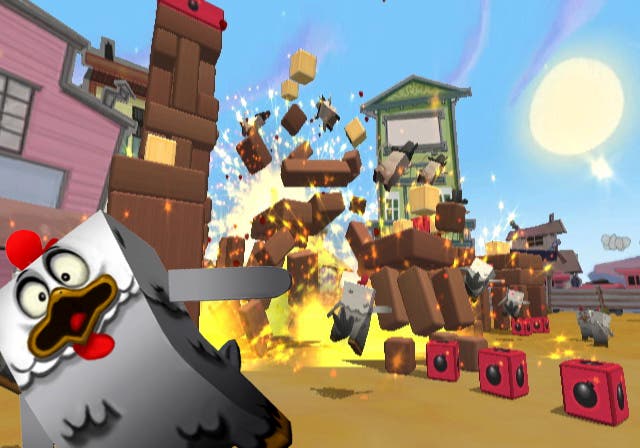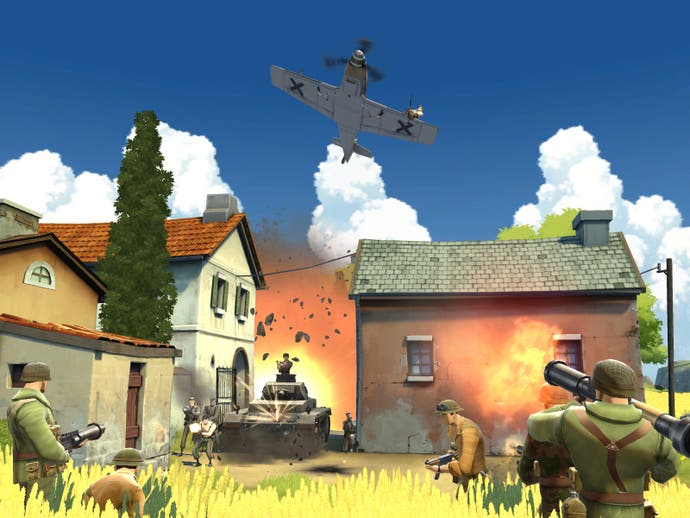Electronic Arts: Back In The Game
Has EA really changed?
The Take-Two deal, too, was put on hold. Riccitiello has gone on record to say that EA was in talks with Take-Two in early 2007, but he scotched the deal, putting it on ice until December of last year. This wasn't, we're told, because Take-Two was an unappealing prospect - but rather because EA needed to get its house in order before trying to swallow a rival publisher.
That spring-clean has had consequences for more than just acquisitions, of course. Across the company, the word is that while the big franchises are continuing, more innovative and original development is now to be encouraged. Quality is a new watchword for a firm frequently accused of churn, and the new Holy Grail within EA is the creation of original IP - franchises that EA generates itself, owns itself, and which can go some distance to clawing back the respect of gamers as well as adding plenty of dollars to the bottom line.
In some parts of the company, this is more obvious than in others. One studio that will be watched with keen interest in the coming months and years is the low-profile outfit under the EA Games label, called EA Blueprint. With its roots in the soil of the Bay Area which spawned EA in the first place, and headed up by Brit ex-pat and EA veteran Neil Young, the division is devoted to exploring new approaches to development, nurturing innovative (and thus risky) low-cost projects, and pushing the boundaries between games and other mediums. Blueprint's remit includes EA's work with Steven Spielberg - and the Maxis studio.
The Leaf Turns Over

In the final analysis, though, this may all sound grand and good - but is it working? Is Electronic Arts really about to break out of its decade as the industry's Evil Empire, and become the Magic Kingdom?
Right now, nobody can answer that question - not even John Riccitiello. The company is making all the right noises, and more importantly, Bioware and Pandemic are making the right noises - in that we'd been expecting them to make horrible throttling noises as the life and creative freedom was choked from them, and they're actually doing quite the opposite. Both studios seem happy and healthy, and EA seems desperately protective of the independence of its new brood. PR, of course, can distort such things - but if that really is the case, then long may it last.
We'll know for sure when the first EA-published games appear from the studios - just as we'll know how EA's own internal creative shifts have affected the firm when their original IP starts to hit the market later this year. That's going to be the real test of EA's commitment to originality, innovation and new IP - but if nothing else, we know that the line-up from the publisher for 2008 and 2009 is looking more interesting for gamers than any of EA's release schedules for a decade.
Hard facts on the full release list are thin on the ground, but this we have been able to establish - around a third, if not more, of the games EA will release in the coming 12 months could well be original IP. They may not be great original IP - we'll just have to wait and see - but either way, this isn't the EA we've all come to know and hate. This is a new EA, and it's an EA that doesn't just want to sell FIFA to the annoying kids next door any more - they want to sell games to you, too.

In the next few months, we'll know whether EA's bid for Take-Two has been successful - and right now, all the signs suggest that it will be. It's hard to see Take-Two's shareholders holding on to their risky stocks rather than accepting EA's generous handout, regardless of what the management may recommend. A year ago, we'd have been preparing our obituaries for Rockstar and its studios, and wondering how Grand Theft Auto would look as an annual release.
Now, we're not so sure. EA has behaved differently in the last 12 months - Riccitiello's sure hand on the tiller is guiding the firm back into the kind of waters that Trip Hawkins originally envisioned back in the 1980s, and words like risk, innovation and originality are no longer dirty. We like what we hear, and we hear it more loudly with each passing day. Perhaps the spirit of the Bay Area's idealism and genius is finally returning to Electronic Arts' corridors.








